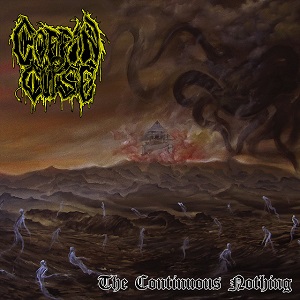JIMI HENDRIX Bio Undoes Myth
August 8, 2005, 18 years ago
The Akron Beacon Journal (www.ohio.com) has issued the following report from Gene Stout:
ROOM FULL OF MIRRORS: A BIOGRAPHY OF JIMI HENDRIX
By Charles R. Cross
(Hyperion, 400 pages, $24.95)
In 1967, the year Jimi Hendrix became the toast of London, a bartender at a working-class pub in Liverpool mistook the rock star for someone far less glamorous.
"Sorry, mates, we can't serve your sort in here," the crusty old barkeep told Hendrix and his band mate, Noel Redding.The humorous story is recounted in Seattle music journalist Charles R. Cross' new book, Room Full of Mirrors: A Biography of Jimi Hendrix.
Hendrix and Redding puzzled over the bartender's rebuff. Both musicians wore purple scarves around their necks and "halos of frizzy hair," Cross writes. Hendrix was dressed in wine-red velvet trousers, a frilly pirate shirt, ancient British military jacket and black cape.
Hendrix wondered if he was being discriminated against because of his skin color, though such problems were unusual at the time in England.
His second thought was that his military jacket -- purchased at a flea market -- might be offensive to English war vets.
When pressed for an explanation, the bartender angrily pointed to a sign on the door.
"If we let one of you in, the whole (expletive) place will be full of your sort, and that's no way to run a pub," he bellowed.Redding collapsed in a fit of laughter after finding a circus poster on the pub door, with a note below it that read, "No Clowns Allowed."
"There's a circus up the street, and this chap doesn't want any clowns in here," Redding told an incredulous Hendrix. "He thinks we're clowns."
Redding's anecdote is one of hundreds of well-researched stories in Cross' book that creates a more intimate portrait of the flamboyant rock star from Seattle than previous biographies.
"It took several interviews with Noel to get the entire story, but it's a very powerful one because it's an entryway into talking about the larger issues that Jimi faced," Cross said in an interview."His race was something he was thinking about a lot. And his outlandishness was a challenge. Jimi Hendrix was almost like an alien on this planet.... Being mistaken for a circus clown when at that point you're the hottest star in England illustrates the strange contrasts of his life."
Fans who think they know everything about Hendrix, the legendary guitarist who died in London in 1970, will be intrigued by Cross' book, the follow-up to Heavier Than Heaven, his best seller on Kurt Cobain.
What Cross unearthed about Jimi's childhood is funny, poignant, provocative and sometimes disturbing. In the mid-'50s, while living with one of many families he stayed with when things weren't going well at home, Jimi made an "otherworldly" prediction about his future: "I'm going to leave here, and I'm going to go far, far away. I'm going to be rich and famous, and everyone here will be jealous."
Years later, when he returned in 1968 to perform his first Seattle concert after becoming famous, Hendrix appeared at an assembly at his alma mater, where students who had no idea who he was -- and had never heard his songs on black radio stations -- began heckling him.
One of the book's more startling revelations is the story of Hendrix's elaborate ruse for getting out of the Army in the early '60s by feigning homosexuality. He told the base psychiatrist an outrageous story about how he had developed homosexual yearnings for his bunkmates.
Cross learned of the ruse after locating Army records that hadn't previously been public.
"It was absolutely shocking," Cross said. "Here's a man that we identify as one of the biggest sex symbols in popular culture and he is feigning gayness to get out of his military service, which could get you killed in that environment. It was a tricky thing."The tale of Hendrix's discharge from the Army is one of many personal revelations that make Room Full of Mirrors unusual among Hendrix biographies. The reality of his life didn't always match the myth.
"It's a great example of the contrast between what really happened in Jimi's life and what Jimi told people," Cross said.Cross did more than 300 interviews for Room Full of Mirrors, a book as challenging to write as Heavier Than Heaven. "The main difference with this book was that I had never met Jimi Hendrix, and I wasn't an African American growing up in Seattle," Cross said. "So it was a different emotional terrain that required a lot more historical research."
What Cross sought as a biographer was a sense of authenticity.
"One of the real challenges for a biographer is that you can't go back and re-create history 100 percent, though I try with as many voices as possible. What you want is an emotional tone that people who knew Jimi will recognize. Even if the specifics don't match what they remember, they'll read the book and feel like they met him again."One revelation, which may surprise Hendrix fans who remember Jimi's father as a kindly old gentleman who basked in his son's legacy, is that their relationship was often as strained and ugly as any father-son relationship can be. Al Hendrix, who often drank to excess, could be brutal and mean, making bad decisions that would scar his sons Jimi and Leon emotionally.
Cross went to extraordinary lengths to piece together the story of Jimi's mother, Lucille, who died in 1958 under mysterious circumstances. Jimi was deeply devoted to her and later wrote songs about her.
Cross found Lucille buried in a pauper's grave in the same cemetery where Jimi, Al and other family members are entombed in an elaborate crypt. He was appalled.
"This is a family that has spent $40 million on legal bills and nobody has $2,000 to buy a headstone for Jimi Hendrix's mother? It's egregious. It's a sin against nature. It just shows you the spiteful meanness of this family and their secrets."Cross' goal as a Hendrix biographer was to reach a general audience.
"This is a great American story. It's a great African American story. I'm trying to write cultural history, not rock history," Cross said. "I'm trying to write biographies that senior citizens in book clubs will find fascinating."










